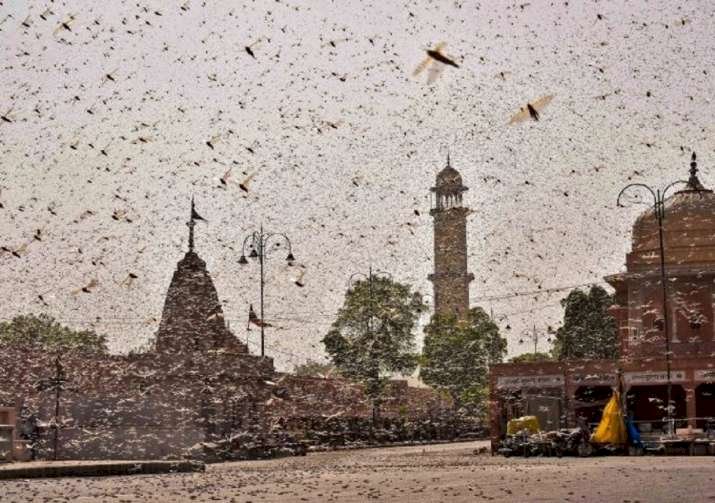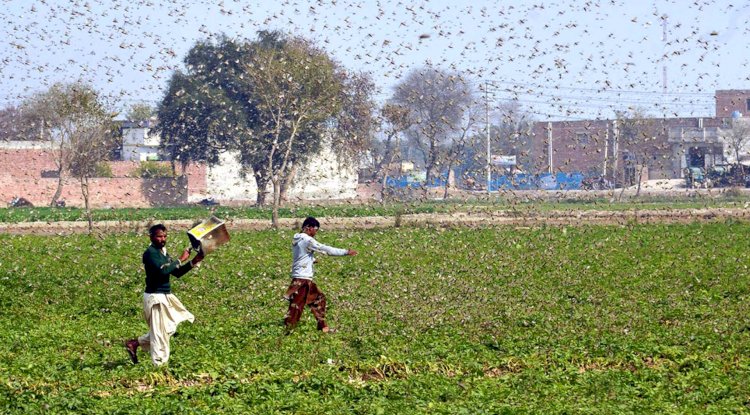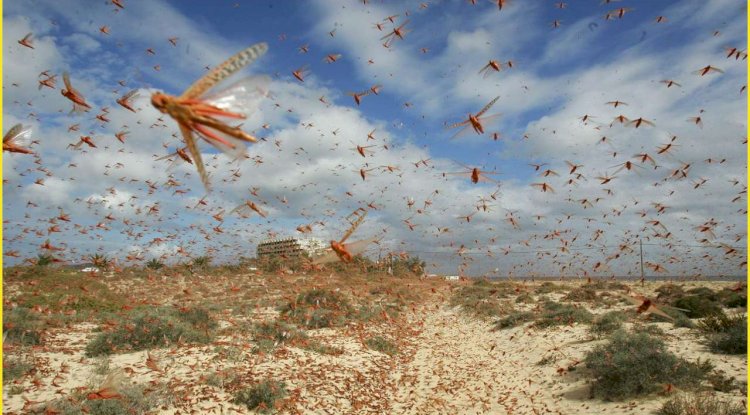Locust Attack is A Blessing For Agrochemical Industry In India
The locusts are currently active in Rajasthan, Gujarat, Maharashtra, Uttar Pradesh and Madhya Pradesh. Rajasthan is the worst-affected state, according to the union environment ministry. To control the losses for agriculture, the pest attack is likely to create additional demand for agrochemical companies in India.
By garima

Locust attack in India has triggered concerns over the Indian agriculture sector in the financial year 2021, even as challenges to tackle covid-19 related issues stay. Locusts are classified as a species of short-horned grasshoppers. They are usually solitary, but under specific conditions, these insects form migratory swarms. They eat almost all crops and non-crop items such as leaves, flowers, bark, stem and seeds. An adult locust can eat food equivalent to its weight ever day. This swarm originated from East Africa near to Sudan and rapidly came towards India and Pakistan and is likely to be accompanied by other swarms, experts say.

The locusts are currently active in Rajasthan, Gujarat, Maharashtra, Uttar Pradesh and Madhya Pradesh. Rajasthan is the worst-affected state, according to the union environment ministry. To control the losses for agriculture, the pest attack is likely to create additional demand for agrochemical companies in India. Shares of Bayer Cropscience, UPL Ltd, Sumitomo Chemicals, Insecticides India, BASF, and Rallies India have risen 1-8% in last three days on optimism for the sector. Such aggressive attack of insects has acted as a stimulus for several farmers to take help of agrochemicals. However, the shortage of agrochemicals in trade due to lockdown along with logistics and transportation issues may not allow faster access of agrochemicals to the farmers. This may be positive for most agrochemical companies in FY21 due to additional demand. The companies with strong Balance Sheets and moats like established brands and distribution will be likely winners, the report said.
Though many insecticides or combinations are used to control locusts, considered one of the most destructive pests in the world, chlorpyrifos is one of the key insecticides. While most agrochemical companies generate some revenues from chlorpyrifos, Gharda Chemicals, an unlisted company, is one of the major players in India.
As India’s rabi season gets over in March and kharif season commences in June, there is negligible farming in India in this period. Hence, analysts believe that there is no immediate impact on Indian agriculture but if the pest attack remains after June, there will be threat to kharif crops in 2020.

Locusts can fly up to 150km in a day and a one-square-kilometre swarm can eat as much food as 35,000 people, in terms of weight, in a single day. The locust upsurge is linked to climate change. Warmer seas mean more cyclones generating the perfect breeding ground for locusts. Today the swarms are as big as major cities and it is getting worse by the day. Previously, a moderate infestation from across the border chomped through crops in an estimated 300,000 hectares in Rajasthan and Gujarat in January.
An upsurge in locust attacks since last year is being attributed to favourable breeding weather caused by a large number of cyclones in East Africa. India, China and Pakistan face the most risk in Asia. Pakistan has already declared an agricultural emergency,
Hope to get the monsson as soon as to avoid these creatures damaging hectares of farm.The Food and Agricultural Organization of the UN had also warned that the impact of the locust attack could be far more serious this year than last year. Some countries in East Africa and Pakistan has already declared an emergency because of the loss caused by locusts.
What's Your Reaction?



















